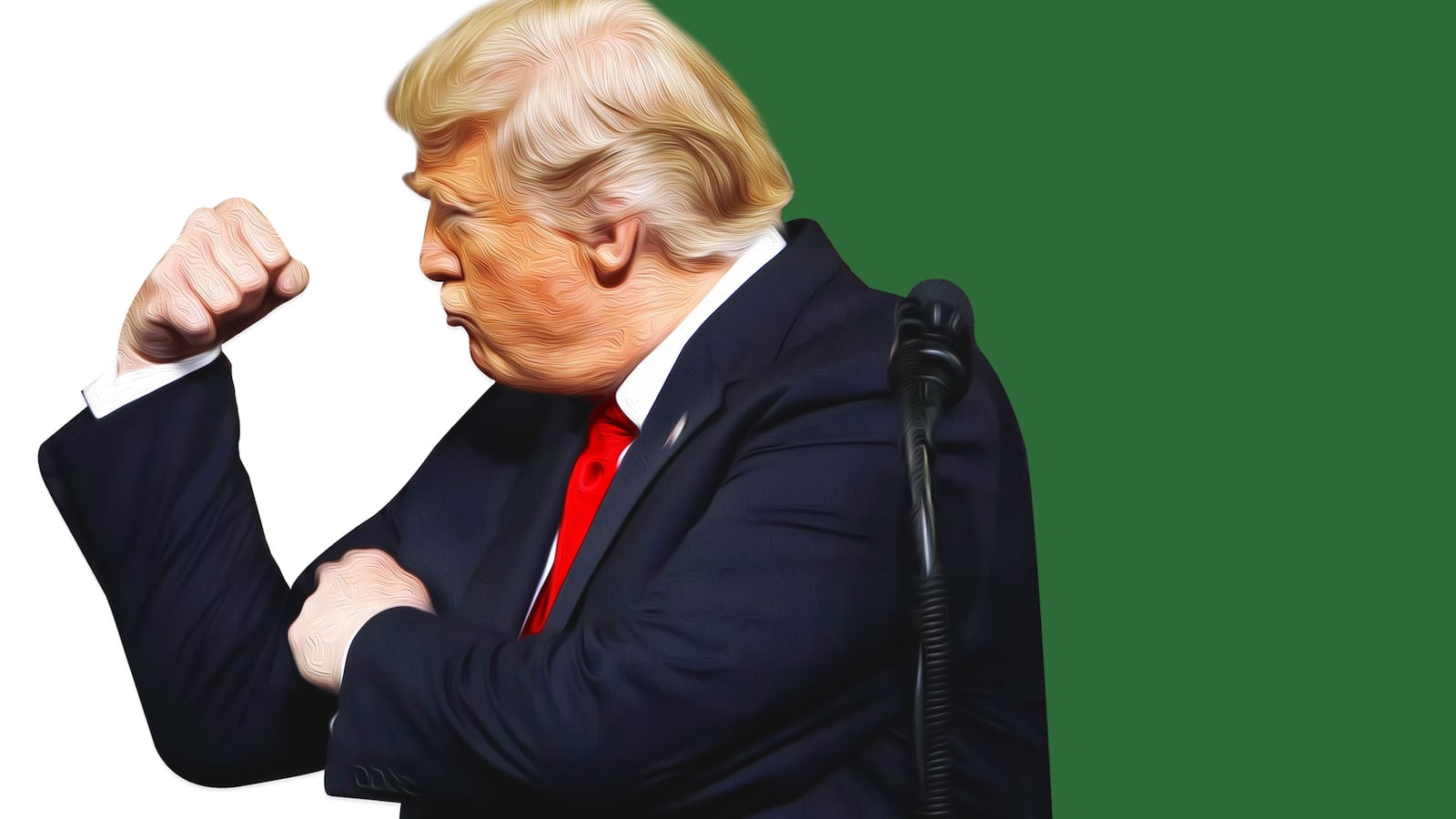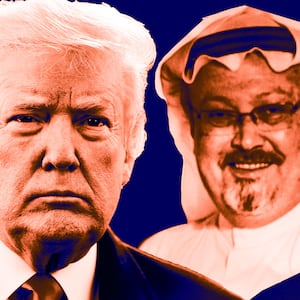PARIS—When will Donald Trump bring Sharia law to America? Of course the immediate answer is “never.” He campaigned against Muslims. He campaigned against Sharia! But in light of recent events, one has to say, as Trump would say, “Who knows?”
What’s certain is that the president’s reactions to the alleged murder of journalist Jamal Khashoggi, and his administration’s fawning relationship with Saudi Crown Prince Mohammed bin Salman, should provoke questions —especially among Trump’s core supporters—about just how subservient the United States has become to a regime notorious for exporting its radical terrorist-inspiring vision of Islam and Islamic law around the world.
After all, if the Saudis can get away with a murder as sordid as the alleged torture and dismemberment of U.S. resident and Washington Post columnist Khashoggi (latest reports suggest the hit-team at the Saudi Consulate in Istanbul started cutting him up while he was still alive) what else might they try to do?
And what else might Trump try to accept?
Given the toadying on display from Trump and Secretary of State Mike Pompeo this week, it’s not entirely impossible to imagine a day when Trump announces that U.S. laws should be informed by the wisdom of the Quran because, you know, his instincts on this are good and the Saudis are great friends and it’s going to mean more jobs for Americans!
Again, that probably won’t happen, but ... who knows? An administration built on instinct and disdain for facts can easily come to believe it can do anything it wants, which is one reason the Saudi royals and the Trump wannabe royals have so much in common.
For the moment, Trump’s inclined to give the crown prince more time to perfect his implausible cover story, and the president vaguely promises "severe" measures if that doesn’t pan out. But experience has shown that if Trump can stall long enough he can move the news cycle to some other distraction like, say, a confrontation at the Mexican border, or his own continued demonstrations of violent contempt for the press, like his praise Thursday for a politician in Montana who body slammed a reporter. (Trump and the Saudis just love the phony thrills of wrestling "entertainment," another thing they have in common.)
But let’s get back to Trump’s core supporters and the Sharia question.
Because you are sane and we have a Constitution that is supposed to rule out such things, you may never have worried about the Sharia-in-America "threat." But many grassroots Republicans loved it when the background was the administration of a president they claimed was a secret Muslim born in Kenya.
Indeed, it was a classic dog-whistle. The notion of a creepy, creeping Islamist takeover of America was a histrionic refrain from Donald Trump, Ted Cruz and others throughout the 2016 elections, but it started before, and has continued since.
The Sharia “threat” was a great distraction. At the same time that Republican-controlled state legislatures were gerrymandering and vote suppressing, they were scrambling to pass legislation banning “foreign laws,” meaning “Sharia.” By the beginning of this year, 201 such bills had been introduced in 43 states, and 14 legislatures actually passed them, according to numbers compiled by the Southern Poverty Law Center, or SPLC.
Although scholars can debate the true meaning of "Sharia," and do, the political discourse in the American heartland is not about the texts of the Quran and the sayings of Prophet Muhammad. It’s about the notorious practices of regimes that claim their legitimacy based on those scriptures—the kind of regimes with arbitrary religious courts that lop off hands and feet and heads, like the so-called Islamic State or, yes, the Kingdom of Saudi Arabia. (The basic difference between ISIS executioners and KSA headsmen? Fewer selfies.)
Trump and his supporters have been reluctant to let the Sharia issue go, knowing it is a hot item with core supporters, which is why an online "questionnaire" posted by the Trump Make America Great Again Committee earlier this year asked, among dozens of leading questions, “Are you concerned by the potential spread of Sharia Law?”
The SPLC, which monitors hate speech and is acutely (sometimes excessively) sensitive to the issue of Islamophobia, calls “the mass hysteria surrounding a so-called threat of ‘Sharia law’” in the United States “one of the most successful far-right conspiracies to achieve mainstream viability.”
To get a sense of the other side, I called Robert J. Muise, Esq. of the American Freedom Law Center, who is co-author with David Yerushalmi of the monograph “Offensive and Defensive Lawfare: Fighting Civilizational Jihad in America’s Courts.”
I asked Muise what he thought of Trump’s performance in the Khashoggi affair, and the threat that the Saudis were imposing their Sharia-type values on America.
“I don’t think that there’s any secret that in Saudi Arabia Sharia law is in force, certainly with regard to their free speech codes,” Muise said. “If you want to find a place where First Amendment freedoms are not afforded to journalists you don’t have to look too far beyond Saudi Arabia.”
Muise then fell back on the basic legal arguments given for anti-Sharia laws or, as he prefers, the model American Law for American Courts statute. The narrow gauge argument is that the Constitution’s guarantees against the imposition of foreign laws are undermined by the principle of comity, accommodating the laws of other countries, and a handful of divorce and custody decisions show Sharia rulings can “work their way into our laws.” He also said free speech in the United States doesn’t seem to be protected when it’s criticizing same-sex marriages, or Islam, or abortion. He complained that attacks on “hate speech” are infringements on free speech. “There’s nothing in the First Amendment about ‘hate speech,’” Ruise said.
Okay, I said, but given Saudi Arabia’s record on free speech, like murdering people who speak out, what sort of example does it set that President Trump is basically an apologist now for Mohammed bin Salman in this Khashoggi case?
“You’re going to have to talk to the White House about where you’re going with that,” said Ruise. “I’m not going to comment on that.”
Of course.
To be sure, in the aberrant Age of Trump, irony has just about died. The preposterous contradictions of a Republican administration making America great “again” are too many and too tragic to list. But to watch the frantic efforts of the administration to cover for a murderous Saudi prince— this from a president who came to power Muslim-baiting and harping on the “threat” of Sharia—adds a particularly gruesome note to the narrative, and an irony that should not be ignored.






